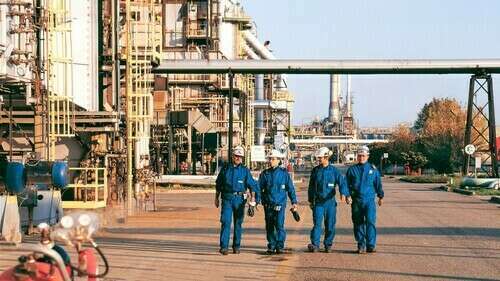Eni unveils new biorefinery project in Sannazzaro de’ Burgondi
San Donato Milanese (MI) -- Eni announces that it has received approval from the Italian Ministry of the Environment and Energy Security to convert selected units at the Sannazzaro de’ Burgondi (Pavia) refinery into a biorefinery. Eni has now started the authorization process and has filed an application for Environmental Impact Assessment (VIA).
The project involves converting the existing Hydrocracker (HDC2) unit using Ecofining™ technology and constructing a pre-treatment unit for waste and residues, which are the main biogenic feedstocks Enilive uses to produce HVO biofuels.
Hydrogen will be sourced from existing plants, while supporting infrastructure, including logistics, will be adapted for the new operations. Traditional fuel production will continue alongside the new production of HVO diesel and SAF-biojet for aviation, expected to begin in 2028.
The new biorefinery will not impact the capacity of the existing refinery; instead, it will operate alongside the existing facilities, enhancing the diversification of products.
Once operational, the biorefinery will have a processing capacity of 550,000 tonnes/year of feedstock, with flexibility to produce SAF-biojet and HVO diesel. The plants will process various biogenic feedstocks, mainly waste and residues. Through Enilive, Eni is already the second-largest producer of HVO (Hydrogenated Vegetable Oil) biofuels in Europe, including both diesel and biojet (SAF – Sustainable Aviation Fuel).
The new Sannazzaro biorefinery will strengthen the site’s strategic role in supplying traditional jet fuel and SAF to north-west Italian airports, via both the pipeline connection to Milan Malpensa airport and depots connected to the refinery near other airports.
The conversion of parts of the Sannazzaro de’ Burgondi refinery into a biorefinery underlines Eni’s commitment - through Enilive - to increase biorefining capacity from the current 1.65 million tonnes per year to over 3 million in 2028 and over 5 million in 2030, with the potential to produce up to 2 million tonnes of SAF annually by 2030. Today, biofuels are produced at Enilive’s biorefineries in Venice and Gela and at the St. Bernard Renewables LLC biorefinery (a 50% joint venture) in Louisiana (USA). A third Italian biorefinery is due to come on stream in Livorno in 2026, followed by two plants currently under construction in Malaysia and South Korea; a further biorefinery in Italy has been announced for Priolo, Sicily.
Categories
Chemical substances
Countries
Latest news
INEOS launches €250m investment supported by the French Government to secure the future of French industry at Lavera
The project marks the first phase of a long-term regeneration plan to reduce emissions, boost reliability, efficiency and competitiveness, with support of the French State.
Hycamite’s technology to decarbonize shipping awarded AiP by industry leader DNV
Kokkola Industrial Park →Hycamite’s proprietary Thermo-Catalytic Decomposition (TCD) technology offers a new approach to producing clean hydrogen by breaking down methane, the primary component of liquefied natural gas (LN...
Clariant catalysts will power the Ecoplanta: Europe's first waste-to-methanol plant
Chemmed Cluster Tarragona →Repsol is building Europe’s first plant to produce renewable methanol from urban waste The facility will use Enerkem gasification technology to produce 240 KTA of methanol Clariant will supply cata...
Lilly plans to build a new $3 billion facility to boost oral medicine manufacturing capacity in Europe for patients worldwide
Netherlands site will bring 500 manufacturing and 1,500 construction jobs while further strengthening Lilly's global supply chain
